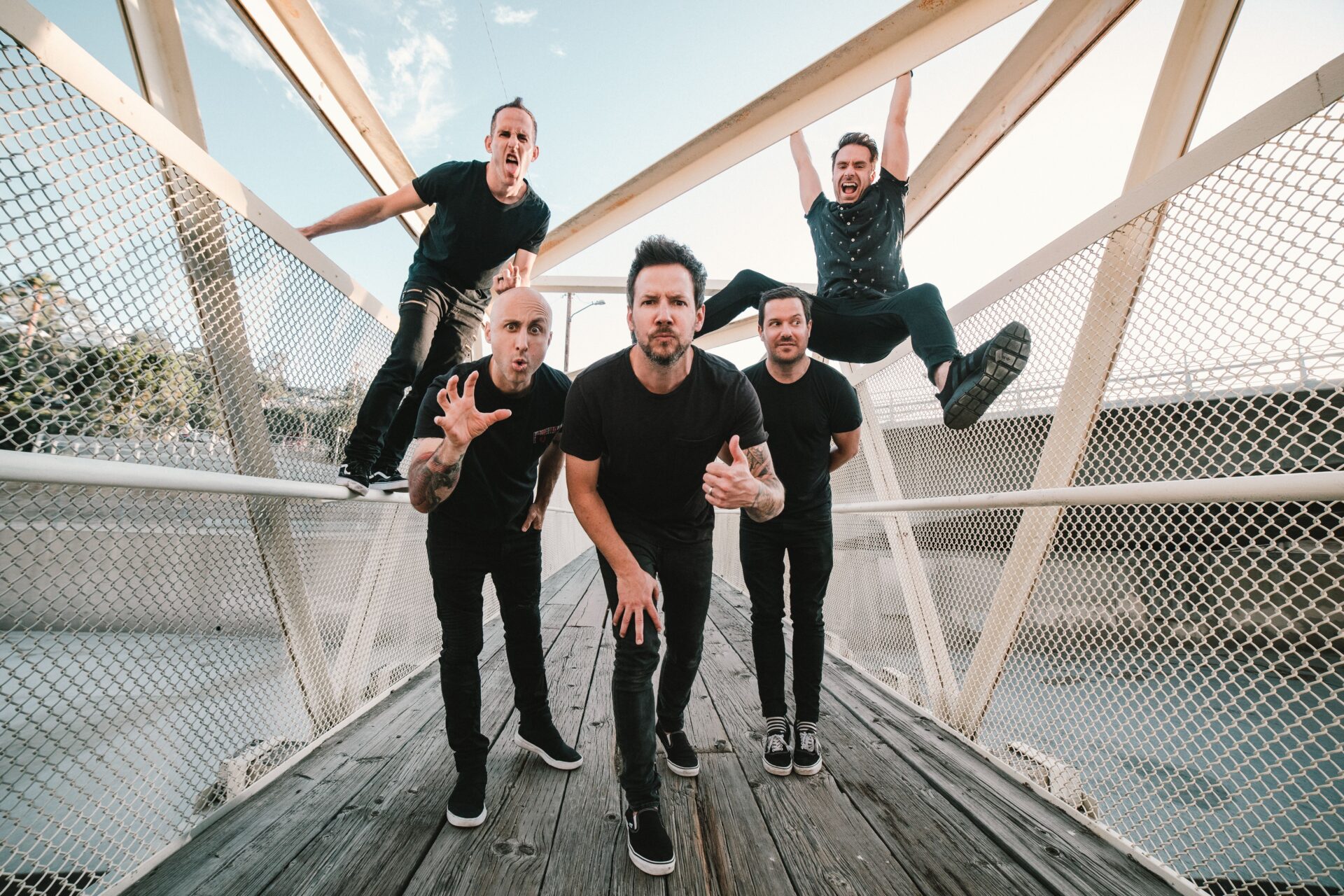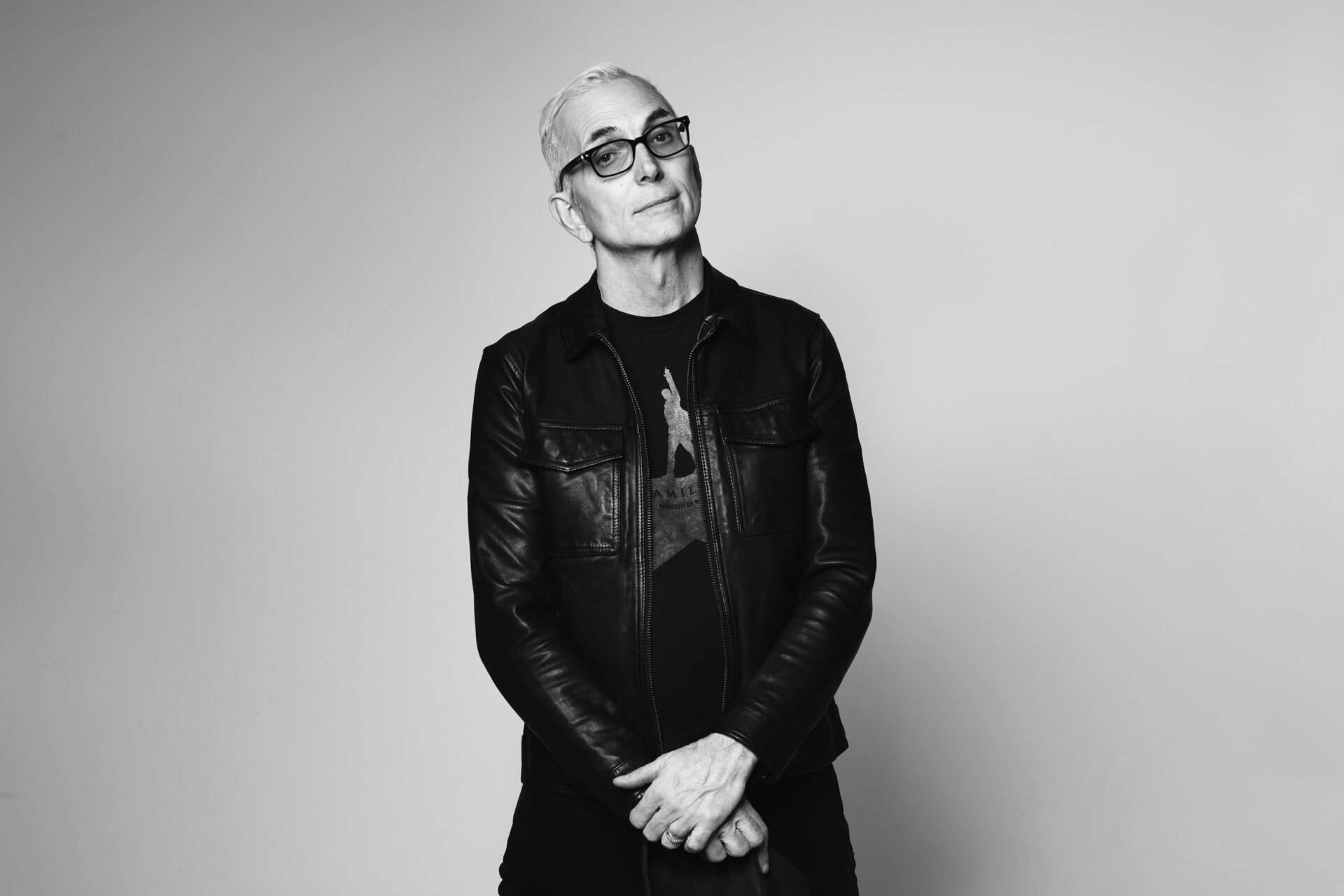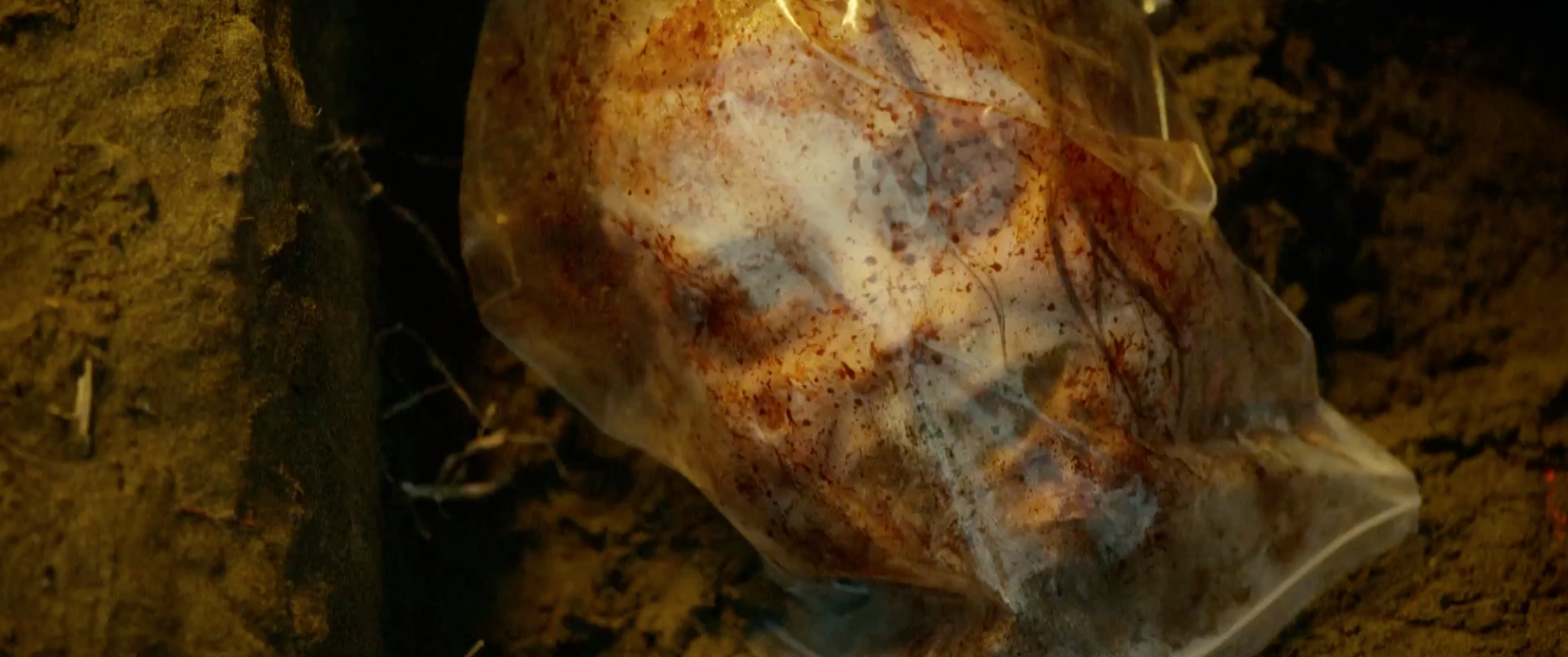Have you ever felt like you don’t fit in? Like no matter what you do or how good you are, you’ll never fully and truly be accepted? And yet, despite as hard as it can be to be on the outside, you can’t imagine changing who you are, even if it means a better shot at acceptance? These are feelings we often first experience as “teenage angst” – that period between childhood and adulthood where we’re beginning to discover who we are but haven’t quite figured it out yet – but which persist throughout life, as we continue to grow, change, and come into our own.
If you’ve ever felt like this, then Simple Plan’s music might resonate with you. Since their first record, 2002’s No Pads, No Helmets… Just Balls, they’ve often sung of the pains of feeling left out and lonely, being betrayed by those close to you, and feeling depressed. Songs like “Perfect” and “I’m Just A Kid” on No Pads were quick to connect with fans and soon take off, leading to performances on MTV’s New Year’s Eve bash and big headlining tours. At the time, guitarist Jeff Stinco was “kind of oblivious to what we were building and how big it was, at points:” he brings up a spring 2005 tour with Good Charlotte, MTV relief shows in Asia, and “taking private jets here and there” as “a crazy tornado that we got caught in, that we just didn’t really realize what it was.”
Caught up in the whirlwind of it all, playing on MTV felt like it was just another show. After a few years of non-stop successful touring in support of No Pads, Simple Plan went right in to make another record. The 2004 Warped Tour was “a crazy wild party” that was “a continuation of what we had been doing”; Stinco reminisces about hanging out with bands like Yellowcard while getting ready to release their sophomore record. At the end of that summer, the group released “Welcome To My Life” as the lead single from Still Not Getting Any… – and it was then that Stinco realized for himself how impactful Simple Plan’s music was. From its opening verse, “Welcome To My Life” was a frank admission of an outsider who struggles with feeling alone and misunderstood, as vocalist Pierre Bouvier sings:
Do you ever feel like breaking down?
Do you ever feel out of place?
Like somehow you just don’t belong
And no one understands you.
The song and its music video soon picked up steam: it charted in several countries worldwide, reaching number 40 on the US Billboard Hot 100. “That felt really important,” Stinco reflects. “It felt like a song for the outsiders, a song that people who didn’t have a chance to express their feelings and felt alienated in some way had a chance to have an anthem for themselves, so I felt it really strongly and people reacting to it.”
Fifteen years later, with five records and more than ten million albums sold worldwide, when asked if he now feels like he fits in, Stinco is quick to respond, “Never! You don’t.” Now, more than ever, the band are grateful to have successful careers playing music – but “then you come back home, and you meet your friends, and they have all those steady jobs, and you tell them – or you don’t tell them – your stories because they just don’t connect.” Sitting in a friend’s living room playing poker, stories of whiplash-fast travel – “yesterday I was in New York, and the day before, well, I was in Europe” – are hard to convey to those who don’t relate, and Stinco admits that “you never feel that you completely fit in at any age.”
There are always frustrations when it comes to fitting in, whether it’s with parents who don’t understand what you’re doing or friends who don’t relate to your experiences – and as a parent, “your kids are looking at you, and they’re like, ‘Dad, you’re so uncool.’… You just cannot win – you’re never cool.” Stinco talks about getting in the car to play music that he feels is well-curated, only for his kids to want to listen to something else. Yet despite the frustration of wanting to share his knowledge and experience of music, seeing his kids find their own paths and their interests is “the nature of things” – and in fact, kids growing up and discovering who they are is a lot of what Simple Plan’s music is about.
In those moments where we don’t fit in, music can be a safe haven and a place of retreat. Last month, Simple Plan hit the road with State Champs and longtime friends We The Kings for the Where I Belong Tour. As Warped Tour has come to an end, the band was eager to do something to keep the spirit of the festival going. State Champs, who they’d met on Warped Tour, are one of a few bands that are “keeping the whole flame alive and the whole pop-punk thing going,” making for a natural tour package.
They’ve also enjoyed collaborating with State Champs and We The Kings on stage for “Where I Belong,” a single released in early October in celebration of the tour. The song is “a romantic take on nostalgia” and feeling at home because of music. The theme is close to the band members’ hearts – but “it’s more than that,” Stinco says. “For a lot of people, music becomes the soundtrack to their lives, but it also becomes a way to exit, to isolate themselves in a positive way from the stress that they have, or some of the heartbreaks or relationship problems that they have.” “Where I Belong” is about all of that at the same time, in a very poetic way– and Stinco hints that it’s in the spirit of Simple Plan’s next album. It’s been more than three years since the band released Taking One For The Team, and they’re eager to release material “a bit quicker than we have in the past.”
On this tour, Simple Plan has been doing two meet-and-greets a day. That may sound like a hectic schedule, but Stinco explains that “this is the organized, structured way of doing things.” They’ve always had a strong connection with their fans, and back in the day, they’d hang out backstage and talk to fans “forever,” staying by the buses to meet people for hours at a time. Nights like these brought a lot of great memories, but it wasn’t very effective: they couldn’t talk to everybody, and hoping to meet a band member by the bus was always “kind of a fluke.” Stinco acknowledges that they’ve “always battled” the idea of transition to paid meet-and-greets, because “we were there meeting the fans for free beforehand.” The meet-and-greets and VIP packages as they are now give the fans — especially those who were shyer and soft-spoken — the guarantee to meet the band and have a quality interaction, as opposed to a chance interaction and random, poorly-lit photo.
This summer, after taking two years off from touring to take care of his mental health and recover from depression, Desrosiers returned to the road. Speaking about this, Stinco says that having him back “felt right.” In the interim, Simple Plan were playing mostly as a four-piece; their photographer, Chady Awad, filled in on a few songs that “need to be a little more loose and less structured with the metronome.” Stinco, Bouvier, Comeau, and Lefebvre were “all a little nervous” when Desrosiers came back: the chemistry of the band seemed to have reestablished as a four-piece, and they thought they’d have to relearn living with him. What they found instead was that “it came back really naturally, really quickly,” cementing the feeling that the five-piece lineup was meant to be, and that they couldn’t take that for granted.
“A lot of things in life just happen, and it just, you know, hits you,” Stinco says, reflecting on the importance of mental wellness. Physical injuries and illnesses are easy to conceptualize – if someone’s leg is in a cast, clearly they can’t walk – but there’s a stigma associated with admitting you’re not well in your mind. Struggling with your mental health is often criticized as a weakness or personal failing, but Stinco stresses that it’s not. “I think David was actually quite courageous to take every single step possible to get better and get back on the road. He’s changed his lifestyle quite a bit, and now he’s on the road with us.”
https://www.instagram.com/p/Byd3je9B6UK/
Seeing the bassist healthy and well is important to the fans, too, who have been “highly supportive” as he’s back in action. When Simple Plan posted about Desrosiers’s return back in June on Instagram, fans were immediately supportive, commenting that it was “the best news ever” and eagerly welcoming his return. Countless fans have shared stories of their own experiences with mental health with the band: “This Song Saved My Life”, from 2011’s Get Your Heart On!, was composed of a series of quotes and Tweets from fans, and Stinco has a feeling that “there are more out there than we can even imagine.” While technology can facilitate communication, it rarely, if ever, brings meaningful interaction – and the isolation that it brings “alienates a lot of people, and it becomes very, very hard on people.”
Stinco explains that “there’s always that sense of… not fitting in, not being completely understood as a parent, as an adult, as a professional musician”: sometimes they’ll release what they think is a great song, but it doesn’t quite connect. The fans, it turns out, are “the real jury” when it comes to music. “It’s frustrating because you feel that after all these years you’ve gotten a handle of it in some way, but you don’t,” he shares, sharing that “sometimes there’s a lot of factors that come into motion for a song to come about.” He thinks back to a headlining tour in the fall of 2005, where Plain White Ts would play “Hey There Delilah” every night; the song was officially released as a single the following spring, eventually being certified four times platinum, reaching the top spot of the Billboard Hot 100, and earning two Grammy nominations in 2008. Paramore, who were fresh off the release of their first album All We Know Is Falling, also opened the tour, years before their self-titled album would hit number one and win a Grammy for “Ain’t It Fun” (Best Rock Song). Although Simple Plan knew they were joined by great bands, nobody could predict how big they would get.
Stinco reiterates that as a musician, “you don’t control the music industry; the only thing you do control is the quality of music you put out.” That’s part of the reason that they’ve taken so long between records: the band have enough songs right now to release two albums, but “we’re very critical towards the material we have.” Rather than put out two average records, Simple Plan have decided to put out the best record they can. It takes time to do that, and it’s meant they’ve had to turn down tour offers so they could dedicate the time to be in the studio.
After releasing their first five albums on a major label and finishing their contract, Simple Plan have yet to decide what to do with album six, which Stinco hopes to release in the spring of 2020. This time around, the band “want to give a chance to this record to be heard by as many people as possible”; they’re lucky to be in a position where they don’t need any help to produce the record, so “we’re making it exactly on our own terms.” This next record will be free of pressure and outside influences, as they set out to make an album that best represents who they are right now.
The fans, Stinco believes, will ultimately benefit from this freedom: “There’s no outside pressure to be anything else but ourselves and I think a lot of fans will be happy to hear that.” There’s been some soul-searching throughout the band’s catalog – Stinco says prior to speaking with Substream, he was listening to some Brazilian music, and that the group “could probably put out a country record if we wanted to, we could put out like a metal record at this point” – as they’ve often questioned what their identity was. With their first two records, they set the boundaries of what their genre was; while those boundaries can be stretched, “the core of it has to be melodic, it has to be energetic; if it’s not, it’s gotta be really heartfelt, for lack of a better word, emo-ish… emotional.” He refers back to the band’s 2008 self-titled album. “When I’m Gone” was released as the first single from Simple Plan, but “it doesn’t portray what the whole record is.” Before playlists and Spotify, singles established what a record would be – but Simple Plan was much more than what “When I’m Gone” hinted at. It leaned towards alternative rock with more mature, existential themes, and while Stinco feels it’s one of their best records, it didn’t see the same chart success as their other releases.
All around the world, Simple Plan fans queue up hours early for shows, proudly display tattoos for the band, and maintain several active fan sites. But back when their first few records were coming out, in between all the excitement were a fair few “haters,” people commenting negatively all over message boards, criticizing the band and giving negative reviews. “That was a big part of our history,” Stinco acknowledges. A big part of his days would be spent on message boards, not understanding why people felt compelled to leave bad reviews but reacting to them anyway. Looking back, he wishes he could tell his younger self that people hating the band so passionately was “amazing” – because “it means it matters – it matters enough to hate it.”
Now, that “stigma” is gone. “There’s a sense of respect that came with the years,” Stinco observes, sharing stories of “crazy, tall, tattooed guys that would scare me” coming up to him at Warped Tour to say that Simple Plan influenced them to start a band. All Time Low have also been “very verbal” about the fact that Simple Plan were a big inspiration to start their band.
Stinco brings up a recent article in NYLON about “Welcome To My Life”: Editorial Coordinator Allison Stubbine talked about “how the song probably rings truer now than it did back then”, but also mentions that the lyrics are “a little bit on the head, like a little bit first degree.” But this “to-the-point” style was how the band wrote at the time – “and to a certain extent, [how] we still write.”
He’s “feeling really good” about this next record, adding that staying on tour has allowed them to harness their live energy into the polishing that happens in the studio. With people feeling “more isolated than ever,” a lot of Simple Plan’s music connects as strongly now as it ever has. In these periods of isolation and loneliness for so many, having a place to belong and feel accepted is more critical than ever, and for many people, music – and even a Simple Plan show – is that place.
Simple Plan are currently on the road for the Where I Belong Tour; head to SimplePlan.com for tickets and tour dates.













